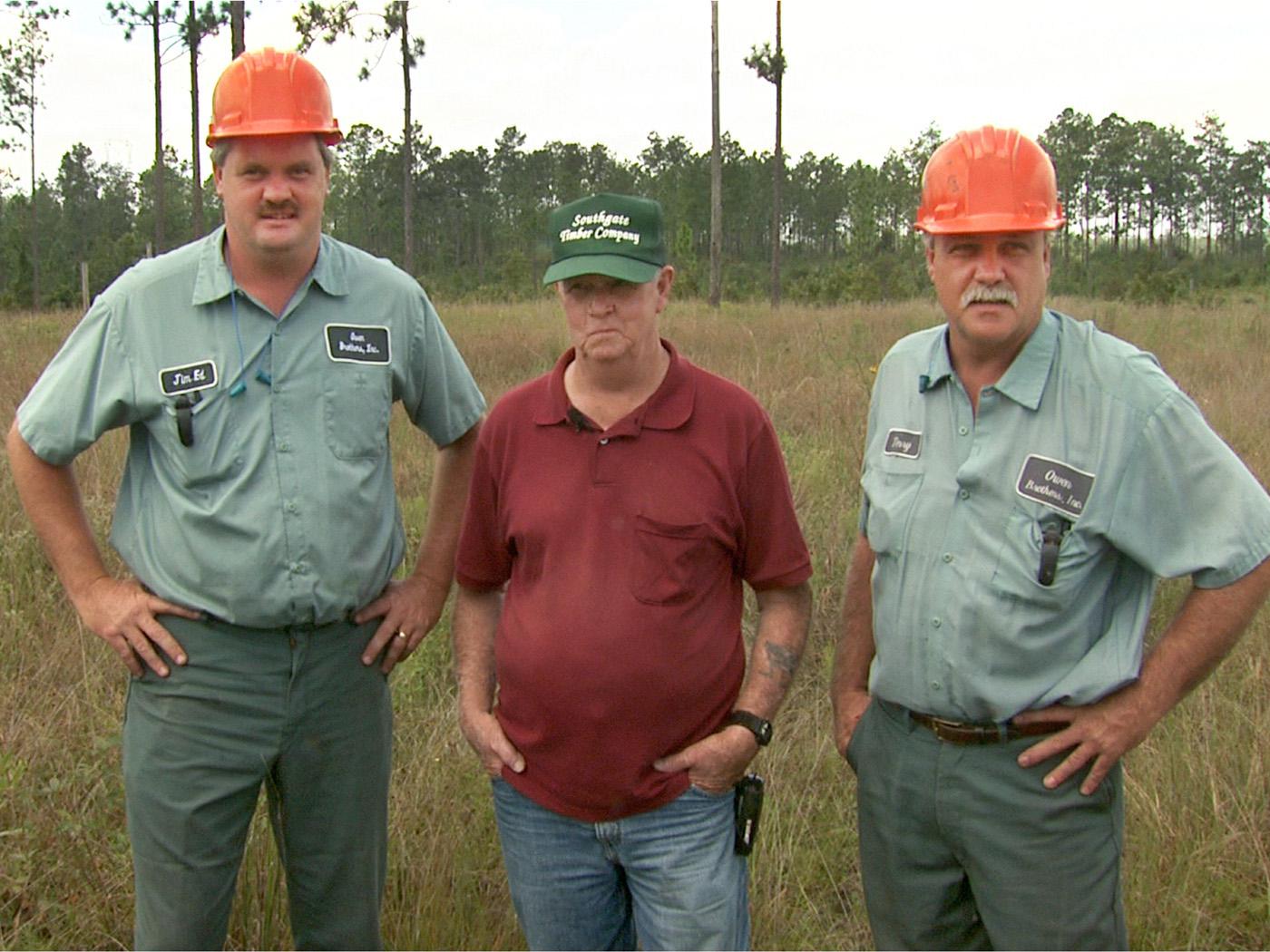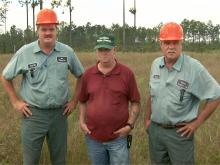Information Possibly Outdated
The information presented on this page was originally released on October 29, 2009. It may not be outdated, but please search our site for more current information. If you plan to quote or reference this information in a publication, please check with the Extension specialist or author before proceeding.
Small logging firm receives big honor
WIGGINS – Two brothers in the logging business for more than 11 years have proven that high production and multiple crews in the woods are not a prerequisite for standing out among one’s peers.
The Mississippi Forestry Association recently named Terry and Jim Ed Owen of Wiggins as the group’s “Outstanding Logger of the Year” for 2009. The brothers grew up learning the logging business from their father, who ran a successful operation. They decided to branch out on their own in 1998.
“Terry and Jim Ed Owen, much like their father, Walt, are a great example of a small family business that discovered a niche and capitalized on it,” said Judith Breland, Stone County director with the Mississippi State University Extension Service. “We are proud to have them recognized for being so successful.”
Terry and Jim Ed have only one three-man crew, which may seem rather small when compared with operations that have multiple crews and high-volume goals. The brothers place great emphasis on doing a quality job for landowners and steadily getting the job done in a safe manner. It has turned out to be the perfect prescription to stay in business despite the domestic economy’s current hard times.
While the brothers learned the craft of logging from their father, they had a different philosophy about the work and wanted to have a life outside of the woods. When they began their own business, the brothers started small and remained that way on purpose.
When he worked for his father, Terry ran a crew that cut from 12 to 14 loads of wood per day. His brother ran a crew that did the same.
“When my brother and I were growing up, Dad was always working,” Terry said. “He never had time to come see a ballgame, and so I didn’t want to be like that with my family.”
The Owen brothers found a local timber buyer, Glen Herrin of Southgate Timber Co. in Purvis, who shared their philosophy of shorter work days. Together with Herrin, the brothers decided that harvesting six loads a day with a three-man crew would work best for them.
“On days when the mills are open longer or need more wood, you can increase your volume,” Herrin said. “But in when times are hard, you can get by with a smaller harvest. It’s all about repeat business and the quality of work that brings repeat business.”
Herrin supplies the tracts of trees for the brothers’ crew to harvest. Much of this activity is located in the Necaise-Leetown area of northern Hancock County. The brothers often conduct selective harvest on vast longleaf pine plantations there. Some of these trees bring in additional value because they are suitable for making poles.
Forestry consultant Joe Pettigrew of Kiln said the brothers’ careful approach to thinning works well. Pettigrew marks the trees to be taken out and crew member Ronnie Meadows then cuts the trees down. Jim Ed, who operates the skidder, carefully removes the trees without doing residual damage to the land. Terry operates the loader to separate trees used for different types of wood products.
“You can’t rush this process,” Pettigrew said. “Terry’s crew has set a goal of six loads a day, which is easy to keep up with when you’re trying to market what you cut. His crew members don’t get in a hurry.”
Jim Ed said he and Terry simply want to do the job as if they were the property owners.
“We try to protect the trees, not skin them,” Jim Ed said. “Ronnie, who’s been logging for a long time, lays the trees where I can drag them without doing a lot of damage. My brother operates the loader and can separate the wood into different merchandise. We try to make everything count for everybody.”
Most timber is sold by the ton, and operations that emphasize high production do not have time to look at small chip-and-saw trees, Terry said.
“Little things that we do, such as considering these trees, help our logger-landowner relationship,” he said.
Terry said he wants the public to have a greater appreciation of the value of wood and to recognize the renewable resource that trees are.
“We’re trying to help Mother Nature by taking care of the land,” Terry said. “As long as we do that, our future generations will still have trees.”






